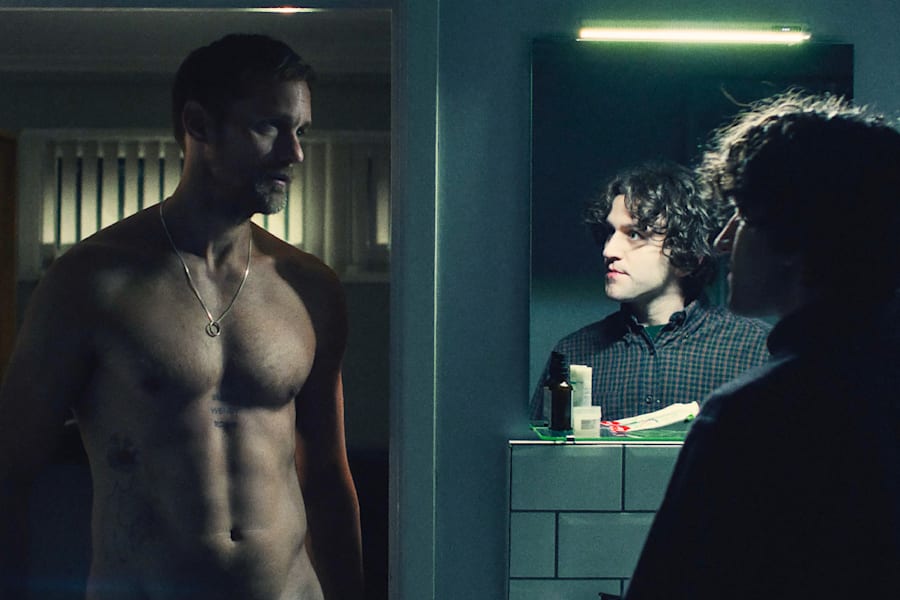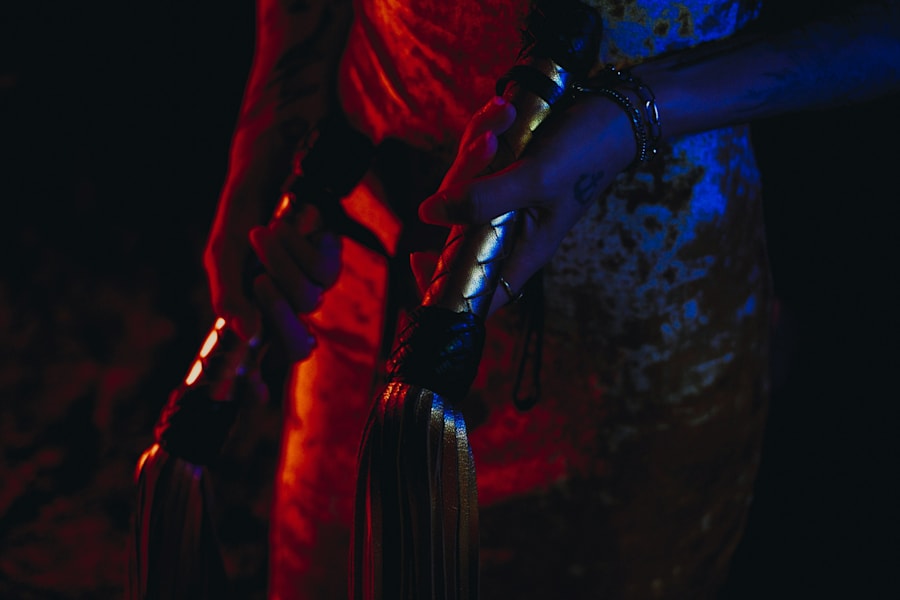
Dating can be tricky at the best of times, but if you're a queer or trans person who isn't fully out, there's an extra layer of emotions, people, and outcomes to consider. Maybe you're figuring out how much of yourself to share with someone new, or you’re worried about the possibility of being outed not on your terms, or you are still exploring your identity. Dating while being closeted is a deeply personal journey, and no two experiences are the same.
Wherever you are in your process—whether you're curious about exploring your identity, thinking about coming out to a partner, or looking to date while staying private—this guide is here to support you. There's no "right" way to do it, and you're not alone. It's all about taking your time and finding what works best for you.
You’re not out yet. So what does "closeted" mean?
The term "closeted" is often used to describe someone who hasn't publicly disclosed their sexual orientation or gender identity. Of course, nobody owes anybody else that information about themselves, and the "closet" metaphor doesn't fully capture the complexity of this experience. It implies a simple binary—that either you're in or you're out of the proverbial closet. But for many LGBTQ+ people, the reality is far more nuanced.
As certified sex therapist and sexpert for pleasure-product company Lelo, Casey Tanner explains, "Someone could be out with friends and family, but not at work, if they feel their workplace would discriminate against them due to their identity."
Jasmine, a 31-year-old bisexual woman, told Feeld that she grew up in a religious environment where being gay wasn't accepted. She eventually distanced herself from the church to explore her sexuality, which allowed her to come to terms with her identity by the time she reached university.
Though she gradually became more open, she didn't feel it necessary to come out. She says: "I've never told my family. Because I'm in a long-term relationship with a man, there's just no point. I don't hide it as such, and many people in my life do know, but for me, it's just easier to avoid the conversation."
For many, coming out isn't a one-time event but an ongoing process. Every new encounter—whether with a friend, a doctor, or a potential partner—presents the decision of whether to share your identity. In that sense, it sort of sits on a spectrum. Closeted experiences also vary based on gender and sexuality. A bisexual person in a straight-passing relationship might not be out because it feels unnecessary, while a transgender or non-binary person might only share their identity in spaces where they feel completely safe. Someone who identifies as asexual may not disclose it unless a conversation about intimacy arises, and a person who is genderfluid might choose when to express different aspects of their identity based on the environment they're in.
The challenges of dating before you’re out
Of course, just because someone isn't out yet, it doesn't mean they can't, won't, or don't date. But dating while closeted can bring its own set of challenges, both for the person who isn’t openly out and for the person they’re seeing. While everyone's experience is different, here are some common hurdles people face when dating as a closeted person:
The fear of being outed
One of the main concerns is the fear of being outed without their consent. There's often a delicate balance between sharing parts of your identity with a partner and protecting your privacy. There are a multitude of reasons why someone might not want to disclose their identity yet—whether it's personal, cultural, or safety-related. And it should be up to them to come out when and if they are ready.
Difficulty being vulnerable with partners
When you're closeted, it can be harder to fully open up to a partner, especially when there's a fear of rejection or misunderstanding. This can make it challenging to build emotional intimacy, as you may hold back aspects of yourself in order to protect your privacy or identity.
Navigating heteronormative expectations
For some, societal norms and expectations can add pressure, making it more difficult to express their authentic selves. There can be a sense of needing to conform to heterosexual ideals, especially when engaging in romantic gestures like public affection, which are often expected in mainstream relationships.
Mental and emotional strain of hiding one's identity
The emotional toll of hiding who you are can be a lot. For many people, the constant need to keep parts of themselves a secret can lead to stress, isolation, or self-doubt. It can feel draining, but it's a reality for those still navigating relationships in the closet. As Kii, a 33-year-old lesbian Feeld member, puts it: "Everyone's circumstances are different. If there's a good reason to be closeted, that's understandable, but for the most part, it's easier to be happy in the open." Ultimately, while staying in the closet might feel safer in certain situations, many find that being open brings a sense of relief and freedom.
Coming out and dating: How to balance both
What happens if someone isn't ready to disclose their sexual or gender identity but they don't want to miss out and still want to date? Whether you're dating with no intention of coming out of the closet anytime soon or are considering how to approach coming out within a relationship, there are several things to think about…
How to date before you’re out, while staying in the closet
Dating while staying in the closet often means making personal decisions about what you're comfortable sharing with a partner and when. It's about setting boundaries for what you're willing to disclose and managing how much of your identity you reveal. You might choose to date in a way that protects your privacy, whether that's avoiding public displays of affection or withholding certain parts of your life, like family dynamics or past relationships. Staying in the closet doesn't mean you're not being honest. It just means you're making decisions about when and how to share your truth.
When and how to tell a partner you're not out yet
If you’re considering telling a partner that you’re closeted, take your time and think it through. You don’t have to share it if you’re not ready. But if you do decide to open up, make sure to frame it in a way that your partner knows it’s not about them—it’s about where you’re at in your own journey, your safety, and how you're figuring things out at your own pace. If they care about you, they should respect your decision and offer love and support.
Jasmine says: "I told my partner fairly quickly into our relationship because I knew he would be accepting, and he is. I think it's really important in a relationship to talk about sexuality, desire, and attraction, and that's something we've both always been open about. I think it also allows him to be more open with me."That said, it’s important to acknowledge that it may affect them too, so it’s a good idea to have an open conversation about it, so you can both navigate it together.
Feeld member Maggie, a 33-year-old trans woman, reflects on her experience dating someone who was in the closet: "She didn't want her family to know she was dating women, so we couldn't hold hands in public. It was a mix of frustration—not wanting to be a secret—and also a sense of gender affirmation. I passed enough that she was worried she'd be outed as a lesbian if we were seen together."
Certified sex therapist Casey Tanner acknowledges the complexity and potential anxiety surrounding these situations. If you are the person dating someone who is closested, you could approach the topic by saying: "I respect the decisions you're making around who to come out with and when. Would you be open to sitting down and talking with me about how we can navigate this together?"
Or, if you're feeling hurt by the secrecy, Tanner suggests expressing that in a thoughtful, compassionate way: "Baby, it hurt my feelings when you introduced me as your friend rather than your girlfriend at that party. I'd love it if we could talk about how we can handle those kinds of questions in a way that feels good to both of us."
These conversations aren't easy, but by approaching them with care, vulnerability, and mutual respect, you can work together to navigate the complex emotions involved.
Steps to prepare emotionally for coming out while dating
Coming out while dating can bring up a lot of emotions, so it’s important to take it at your own pace and be kind to yourself through the process. Here are some steps that could help you to manage the emotional side of things:
- Take things one step at a time: Coming out is deeply personal, so don’t feel like you have to tackle everything at once. Try breaking it down into smaller, manageable pieces. Writing in a journal or chatting with a friend or therapist can help you make sense of your emotions.
- Know your boundaries: Think about what feels right for you to share—whether it’s about your sexual identity, your relationship, or both. It’s okay to take your time figuring out where your comfort zone lies.
- Acknowledge changing emotions: It’s normal for your emotions to shift as you go through this process, and that’s completely fine. Coming out isn’t a one-off event; it’s a journey that evolves.
- Create a support system: Surround yourself with people who get it—whether that’s friends, a supportive partner, or a community of folks who’ve been through something similar. Their advice, comfort, and perspective can help you stay grounded as you navigate your journey.
Recognizing when you're ready to come out
Coming out isn’t a one-time thing. For many people, it’s an ongoing journey, and there’s really no “perfect” moment to do it. But there are a few signs that might tell you you’re ready:
- You’re comfortable with who you are and feel good about sharing that part of yourself with others.
- You trust the people around you, especially your partner, and believe they’ll support you no matter what.
- You feel emotionally prepared to handle whatever might come your way, even if it means facing judgment or rejection.
Take your time, and don't rush. It's best to do it at your own pace and on your own terms.
Dealing with the stress of dating when you’re not out
Dating while closeted can be stressful—there’s the fear of being outed, the weight of keeping a big part of yourself private, and the challenge of building meaningful connections while navigating it all. But that doesn’t mean you have to go through it alone. Finding ways to manage stress and protect your well-being can make a big difference.
Lean on emotional support systems
Having people you trust—whether a partner, friends, family, or a therapist—can help you process emotions and feel less isolated.
If you’re not ready to open up to someone in your daily life, online communities can be a great alternative.
Find online communities that get it
Sometimes, in-person support isn’t accessible, or you might not feel comfortable sharing your experiences with people who know you. That’s where online spaces can help. Platforms like Reddit’s LGBTQ+ subreddits, Discord servers, and forums specifically for closeted individuals offer a space to connect with people who truly understand. Being able to vent, ask for advice, or just hear about others' experiences can make a huge difference in feeling less alone.
Managing the anxiety of keeping your identity hidden
The mental toll of staying closeted—whether it’s stress, fear, or frustration—can add up. Finding ways to take care of yourself emotionally is key.
Simple things like journaling, meditation, or even taking breaks from social situations that feel overwhelming can help. The goal isn’t to push yourself to come out before you’re ready, but to find ways to make the present moment more manageable.
Fostering meaningful relationships while staying in the closet
Dating while closeted adds another layer of complexity to relationships. You might worry about how much to share, how your partner will feel about your situation, or how to navigate moments that put your identity in question.
Dating while closeted is a journey that requires self-compassion, patience, and reflection. Whether you're exploring your identity in private or considering coming out to your partner, there is no script to read from or no tried-and-tested way of doing it. And it’s quite likely that it won’t even make a difference.
Tam, 38, a Feeld member who identifies as a lesbian, offers some reassurance: "No one actually cares. Trust me. The people that matter don't mind, and the ones that mind don't matter. Live your life for YOU."
Just remember that your identity is yours to explore and define. If and how you choose to share it is entirely up to you. When you're ready to connect with like-minded people, Feeld offers a welcoming community where you can chat with others who understand and support your journey.


